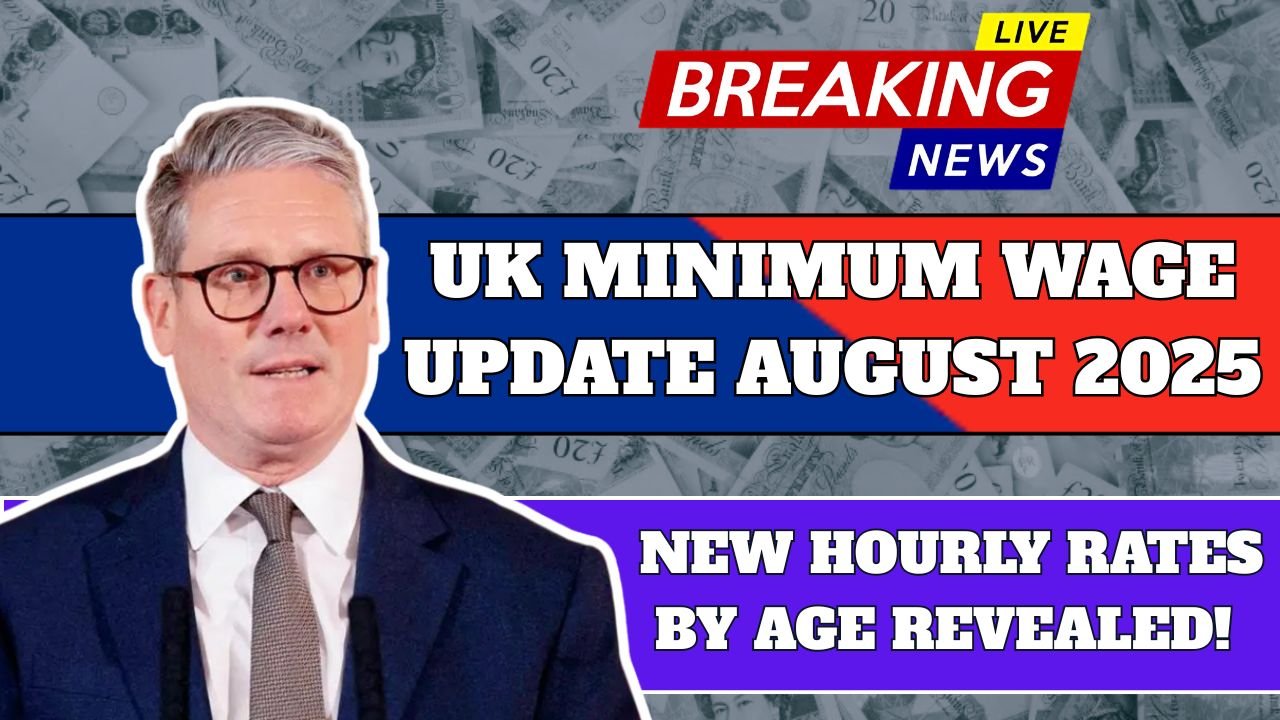UK Minimum Wage Update August 2025: The month of August 2025 is turning out as a very significant one to the employees and employers in Britain. With this government notable alteration of minimum wage rates, there is a major advantage to young workers and apprentices. The change is not simply increment of few pence, but it is the part of the overall strategy of the British government that plans to secure wages according to the level of cost of living and minimize income disparity.
Why did the salary change?
During the last several years, inflation, rent, fuel and food prices have grown very fast in the UK. Handling these expenses was proving hard day by day, especially by those low paid employees. This transformation has been introduced in this context so that all categories of employees avail a chance to live in a dignified manner. It is wonderful news especially to the young people between 16 to 22 years; since their wages would rise by nearly 10%.
New minimum wage from August 2025
The government has increased the minimum wage rates for all age groups. Here’s a comparison of the new and old wages:
| Age group/status | Old wage (2024) | New wage (2025) |
|---|---|---|
| National Living Wage (23+) | £10.42 | £11.15 |
| Employees aged 21–22 | £10.18 | £10.95 |
| Employees aged 18–20 | £7.49 | £8.30 |
| Under 18 | £5.28 | £6.10 |
| Apprentices | £5.28 | £6.00 |
This change is not just for adult employees, but also includes apprentices and young workers, who previously received relatively low pay.
Who will this change apply to?
This pay rise will apply to all legally working employees, including:
- Employees aged 16 to 24
- Employees aged 25 and over
- Apprentices
- Employees receiving the National Living Wage
It is legally mandatory for every UK employer to pay all their employees according to the new wage. There will be no exemptions. Whether you own a small cafe or run a national retail chain, it is your responsibility to update your payroll system in accordance with the new rules.
Employers’ responsibilities
Employers must take several important steps after the minimum wage changes:
- Update your payroll system to the new pay rates
- Change employee contracts if necessary
- Inform employees of their increased pay
- Review shift patterns and budgets
The government will keep a close watch. Businesses that violate the rules will be prosecuted through audits, anonymous complaints and whistleblower reports through HMRC (Her Majesty’s Revenue and Customs). Violators can be publicly listed and face heavy fines.
Impact of this change: on employees and the economy
The minimum wage increase directly affects employees’ pockets. This change:
- Increases the purchasing power of low-income groups
- Improves employee satisfaction and motivation
- Reduces attrition rates
- Reduces dependence on government aid
- Encourages young people to enter the workforce
While there may be an initial economic pressure on small businesses, experts believe that in the long run, this move will boost the country’s productivity. This change is a positive initiative not only from a social point of view but also from an economic point of view.
Government’s strictness and future direction
One thing is for sure—the government is very serious about the rules this time. HMRC will not only conduct regular audits but will also act on anonymous complaints made by employees. This simply means that employers should not have any scope for laxity now.
The government wants to ensure that no employee gets less than the minimum wage for his hard work. This strictness is not only beneficial for employees but is also a step towards making companies responsible.
Conclusion: Change was necessary and right
The UK minimum wage update that will come into effect in August 2025 is not just a policy update. It is an attempt to strengthen a section of society that has been surviving on low pay until now. This is a huge opportunity, especially for young workers and apprentices. At the same time, employers also now need to understand that paying employees a decent wage is not only morally right but also essential for the long-term health of their business.
FAQs (Frequently Asked Questions)
Q1. When will the new UK minimum wage come into effect?
The new rates will be effective from 1 August 2025.
Q2. Who does the wage increase apply to?
It applies to all legal employees in the UK, including apprentices and workers under 18.
Q3. What happens if an employer doesn’t comply?
Employers may face audits, public listing, or fines by HMRC.
Q4. How much will apprentices earn from August 2025?
Apprentices will earn a minimum of £6.00 per hour.
Q5. Why is the minimum wage increasing now?
To help workers keep up with rising living costs and reduce income inequality.


